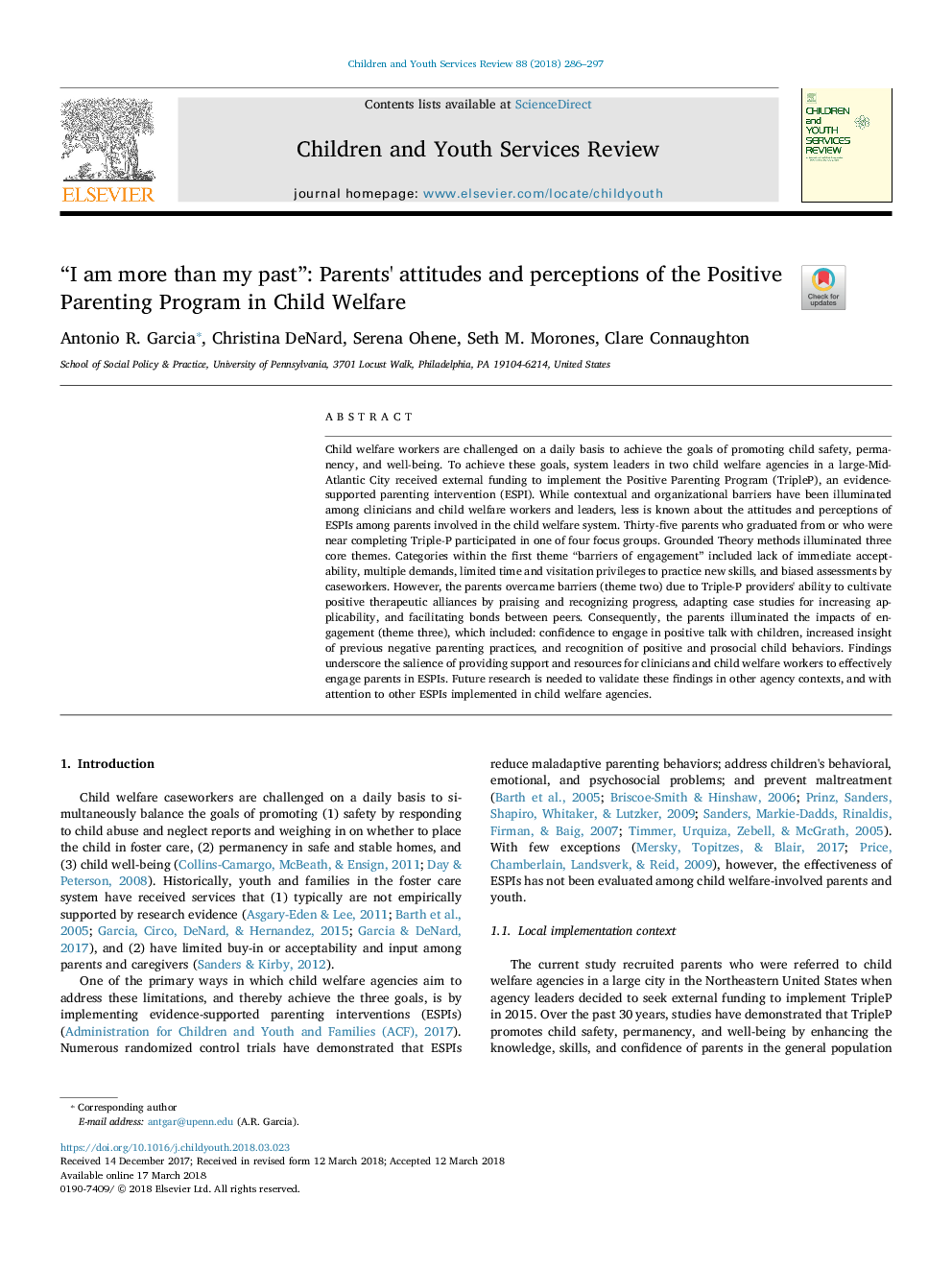ترجمه فارسی عنوان مقاله
من بیش از گذشته ام: نگرش والدین و درک برنامه والدین مثبت در رفاه کودکان
عنوان انگلیسی
I am more than my past: Parents' attitudes and perceptions of the Positive Parenting Program in Child Welfare
| کد مقاله | سال انتشار | تعداد صفحات مقاله انگلیسی |
|---|---|---|
| 127271 | 2018 | 12 صفحه PDF |
منبع

Publisher : Elsevier - Science Direct (الزویر - ساینس دایرکت)
Journal : Children and Youth Services Review, Volume 88, May 2018, Pages 286-297

